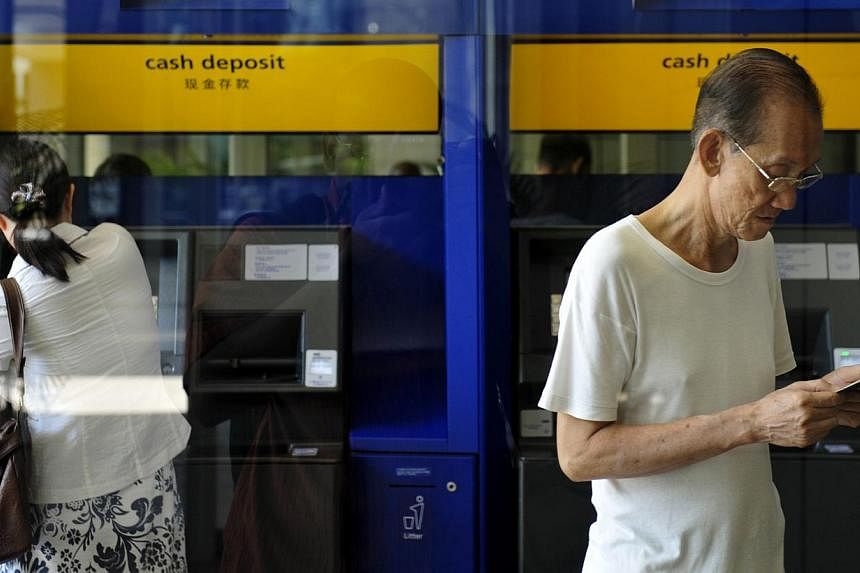When a good friend retired from a high-flying banking career many years ago, I was surprised by the drastic steps he took to adjust to his straitened circumstances.
Gone was the chauffeur-driven Mercedes-Benz as he learnt how to drive a Toyota Corolla. He also had to get used to the cattle class with the rest of us when he flew, after years of enjoying the comforts of first-class air travel.
I was then in my mid-30s, and watching the discomfort he had in adapting to his new lifestyle etched an indelible mark on me. What was supposed to be the best years of my friend's life - as he reaped the fruits of a lifetime of working hard and climbing the corporate ladder - had turned into a nightmare.
My friend might have been an extreme example of suffering from an anxiety attack when confronted with the travails of retirement, but most people are likely to suffer in the same way in varying degrees when they stop working.
It made me decide to live well below my means, if only to minimise the dislocations that I may have to put up with when I eventually make my own exit from working life. In hindsight, that has turned out to be a profitable move.
At one stage, I had been tempted to buy an upmarket Nissan Cefiro car but that would have required me to take a huge loan. Instead, I opted to keep my then trusty old Mazda sedan and used the money, earmarked for the car down payment, to buy shares in Tan Chong International, Nissan's local distributor.
In the 15 years since I made my investment, the stock has paid me a decent dividend every year. That was on top of its price appreciation. Had I succumbed to the temptation of buying the Cefiro, it would have been sold for scrap metal long ago. That would really be throwing a big pile of money down the drain.
I applied the same rationale when I bought Hong Kong-listed Prada shares. Some of my younger friends are decked from head to toe in Prada accessories. But rather than splurge my hard-earned money on Prada shoes, I believed that investing in the stock was a better option. Years from now, I will still have my Prada shares while my friends' Prada accessories would have long been consigned to the bin or second-hand store. Some will say that I am too much of a Scrooge, eyeing the investment opportunity when I should be pampering myself with the material comforts my money can buy while letting the future take care of itself. But that is taking for granted that we are living longer, and unless we save and invest judiciously, we may end up destitute at the end of our lives.
Even though I have done fairly well in my investments, there is still a worry at the back of my mind as to whether I would have accumulated a sufficient nest egg when I stop working. This is not an isolated concern. Going broke in retirement is probably one of the biggest fears for most of us.
A survey last year by British lender HSBC showed that about 17 per cent of Singaporeans said they could not afford to retire. Separately, a survey by insurance giant Manulife last year showed that while Singaporeans expect to be in retirement for about 18 years, they estimate that their savings would last only 12 years.
This probably helps explain the heated debate on the Central Provident Fund (CPF), the Minimum Sum that has to be set aside in a person's CPF retirement account when he turns 55, and whether the returns offered by CPF can outpace the rising costs of living.
But I believe the future is not all gloom and doom and there are plenty of things a person can do to try to build a nest egg on top of the savings in his CPF account. But first, it is necessary to debunk the myth that Singaporeans are not saving enough.
Last month, CIMB Securities did its own cost of living survey and concluded that a high proportion of households - 87 per cent, to be precise - do save part of their monthly income. In fact, saving for retirement is a big theme in Singapore. That does not seem to gel with the impression that we are overstretched and struggling, it said.
The bigger problem here, like everywhere else, is how we can earn a decent return on our savings in the depressingly low interest rate environment, without exposing ourselves to too much financial risk.
This dilemma is best summed up in a survey last year covering nearly 6,000 people around the world conducted by American fund manager Natixis Global Asset Management. It noted that investors have set aggressive investment targets but don't have a realistic way of achieving them.
Instead, they are torn between a desire for high unrealistic returns and insecurity about taking risks. While they like to own investments they understand well, few have in-depth investment knowledge.
Instead, they play the market the way most people bet at the racecourse or in the casino - by relying on their hunches. This can cause them to buy high and sell low as they try to time the market, whether they are trading stocks or investing in property.
I try to avoid such a pitfall by watching other people's spending habits as well as mine for clues to what to invest in. That was how I ended up with shares in Tan Chong and Prada.
Some financial advisers may recoil in horror at how I arrived at my investment decisions, but it sure beats trying to rely on using gut instinct or the hot tips regularly tossed up in the market. Will this strategy provide me with a comfy retirement eventually? I sure hope so.


